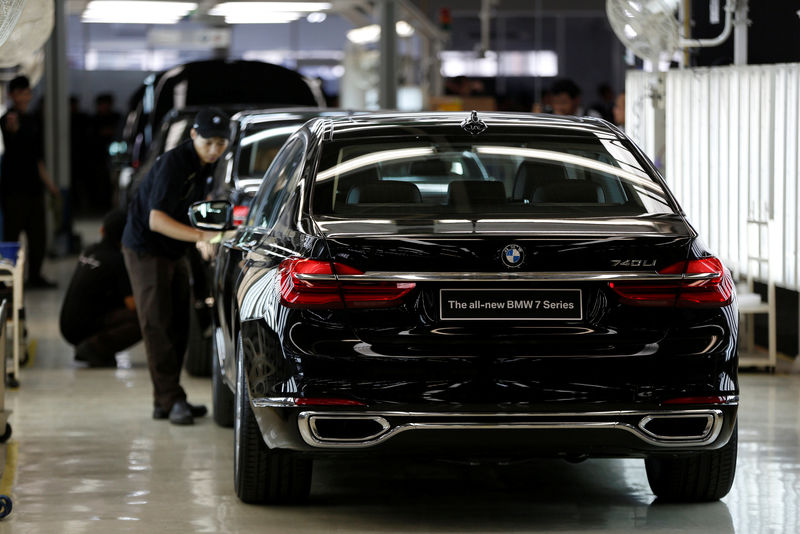Investing
BMW and Mercedes quarterly sales drop on weak China By Reuters

By Andrey Sychev and Miranda Murray
BERLIN (Reuters) -Sluggish demand and stiff competition in China hit third quarter sales at BMW (ETR:) and Mercedes, the German luxury automakers said on Thursday.
The German car sector is facing multiple challenges, ranging from high production costs and managing the shift to electric vehicles to falling demand and rising competition from China.
The troubles have been illustrated most recently by cost-cutting at Europe’s biggest automaker, Volkswagen (ETR:), which is considering plant closures in Germany for the first time.
For the July-September quarter, BMW’s sales fell 13%, while Mercedes reported a 3% drop.
Demand in China, the world’s biggest auto market, is suffering from a flagging economy, while foreign carmakers face stiff competition from local manufacturers offering cheaper models, especially EVs.
BMW’s sales in China slumped by a third, while Mercedes’ fell by 13%.
Mercedes’ high-end segment was hit in particular by lower consumer discretionary spending in China, affecting its luxury S-Class lineup, with prices starting from 451,800 yuan ($63,700) in the country.
BMW did not specify model performance in China but said global sales of its Rolls-Royce (OTC:) limousines fell 16%, while its MINI brand suffered a 25% drop.
TRADE TENSIONS
Mercedes also noted a subdued global battery electric vehicle (BEV) market, reporting a 31% BEV sales drop. For BMW, BEV sales rose 10% in the quarter.
The European Union has recently imposed hefty tariffs on Chinese-made EVs, saying they benefit from unfair state subsidies. Beijing denies this and has threatened retaliation, while German automakers, which make about a third of their profits in China, have voiced concern and called for more talks.
China is considering a hike in tariffs on large-engine vehicle imports, which would hit German producers in particular. German exports of cars with 2.5-litre engines or larger to China reached $1.2 billion last year.
European consumers are reluctant to buy more expensive EVs, in part because of patchy charging infrastructure.
Shares in BMW and Mercedes were flat after the sales data.
The companies cut their annual forecasts in September citing a sluggish Chinese market, while BMW also mentioned problems with a braking system supplied by Continental.
So far this year, BMW and Mercedes shares are down 23% and 9% respectively, while the pan-European automotive index is down 13%.
($1 = 7.0770 renminbi)
Read the full article here

-

 Side Hustles6 days ago
Side Hustles6 days agoWhy the Best CEOs Think Like Anthropologists
-

 Side Hustles4 days ago
Side Hustles4 days agoThis User-Friendly H&R Block Software Package is Only $40, While Supplies Last
-

 Investing4 days ago
Investing4 days agoTikTok faces US ban deadline as users brace for fallout By Reuters
-

 Passive Income3 days ago
Passive Income3 days agoTrain for a New Tech Career in 2025 With This $25 Course Bundle
-

 Personal Finance5 days ago
Personal Finance5 days agoDecember inflation clouds Fed's outlook on interest rate cuts
-

 Personal Finance6 days ago
Personal Finance6 days agoCalifornia's homeowners insurance industry faces rough road ahead as wildfires continue
-

 Investing6 days ago
Investing6 days agoWhy Not Owning Bitcoin is Making You Poor
-

 Make Money6 days ago
Make Money6 days agoDon’t Settle: 5 Game-Changing Moves to Maximize Your Financial Advisor’s Impact


















